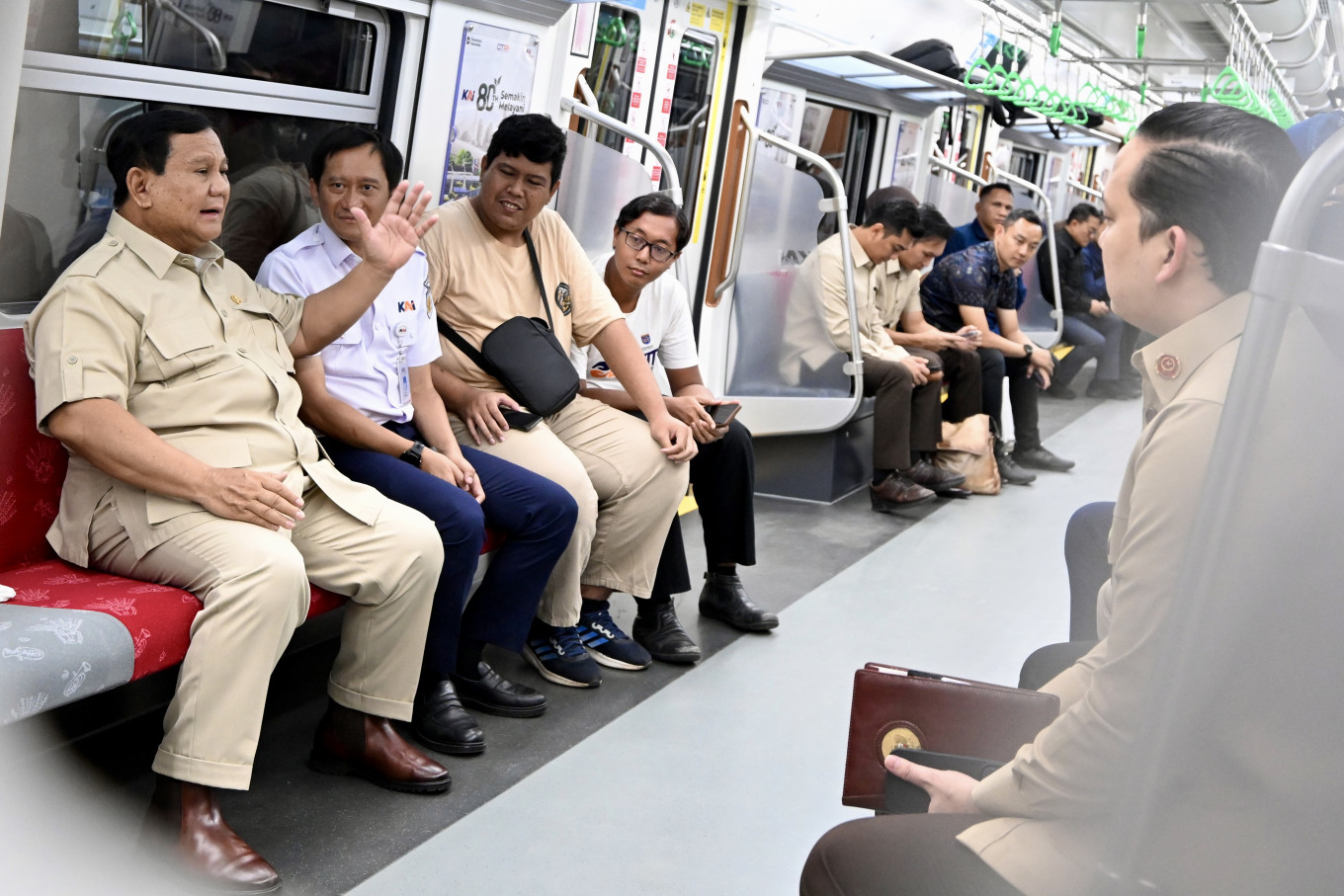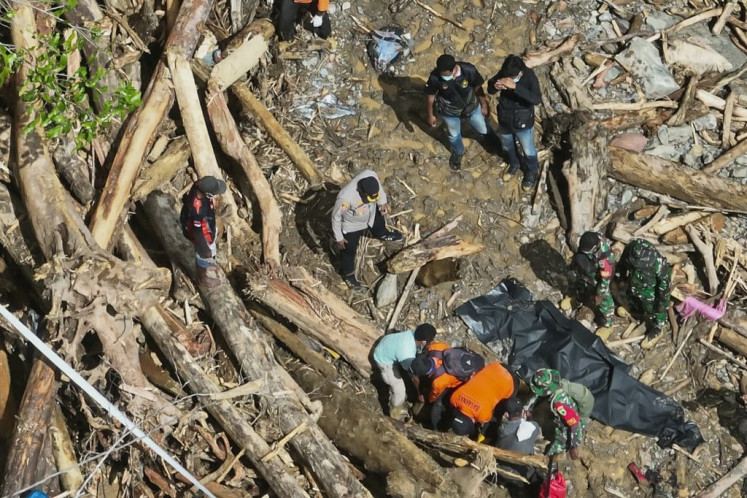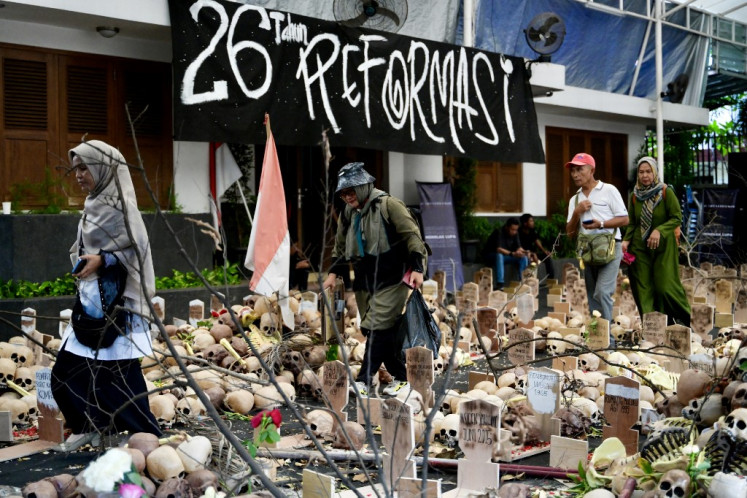Popular Reads
Top Results
Can't find what you're looking for?
View all search resultsPopular Reads
Top Results
Can't find what you're looking for?
View all search resultsPresident Prabowo's approval steady at 78% despite challenges
Prabowo's approval is little changed from 80.9 percent in the previous poll, released in January. He took office in October 2024 after sweeping a general election, but his government has had to deal with a number of economic and social challenges, including the protests against some of his policies.
Change text size
Gift Premium Articles
to Anyone
 Track record: President Prabowo Subianto (left) rides a commuter train from Manggarai Station on Tuesday, November 04, 2025, on the way to inaugurate the newly built Tanah Abang Baru Station in Central Jakarta, a Rp 309 billion (US$18.47 million) project. (Courtesy of Presidential Secretariat Press Bureau/Cahyo)
Track record: President Prabowo Subianto (left) rides a commuter train from Manggarai Station on Tuesday, November 04, 2025, on the way to inaugurate the newly built Tanah Abang Baru Station in Central Jakarta, a Rp 309 billion (US$18.47 million) project. (Courtesy of Presidential Secretariat Press Bureau/Cahyo)
P
resident Prabowo Subianto's public approval rating is steady at 78 percent a year after he took office, a survey showed on Saturday, despite a challenging first year in office marked by deadly student protests.
Prabowo's approval is little changed from 80.9 percent in the previous poll, released in January. He took office in October 2024 after sweeping a general election, but his government has had to deal with a number of economic and social challenges, including the protests against some of his policies.
Only 20.8 percent of respondents in the new survey expressed dissatisfaction with Prabowo, Burhanuddin Muhtadi, founder of independent polling organization Indikator Politik Indonesia, told journalists.
"Based on our national survey ... the variable that makes the public most satisfied is eradicating corruption," Muhtadi said, adding that Prabowo also received high marks for social assistance and his signature free-meals program.
Prabowo's lowest approval was for the political situation, at 31 percent in the survey, conducted between October 20 to 27 and involving 1,220 respondents. The highest was for security at 56.5 percent.
Prabowo won the presidency on a promise to stamp out corruption and increase economic opportunities by accelerating gross domestic product growth to 8 percent from 5 percent.
Among his most contentious policies since taking power has been formalizing the expansion of the military's role in civilian governance, which triggered the protests.
The use of soldiers by Prabowo - a former special forces commander dismissed from the military amid speculation of rights abuses and once barred from entering the US - for tasks such as running civilian departments and manufacturing medicines, has been criticized by rights groups as a threat to democracy.
His ambitious free-meals program that targets nutritious meals for over 80 million Indonesians, has hit some hurdles. Some 15,000 children had fallen ill as of October 29 after consuming food prepared under the program.
But it has been the economy which has challenged Prabowo most persistently. Growth slowed to 5.04 percent in the third quarter from 5.12 percent in the second quarter as household spending, which makes up more than half of Indonesia's GDP, cooled slightly.
While growth remains steady, it is still below this year's target of 5.2 percent, underscoring the challenge of lifting growth to 8 percent by 2029. There have been multiple stimulus packages and interest-rate cuts this year, but investor sentiment remains lukewarm.
"This is an input for Prabowo's government, that satisfaction has not been contributed by economic factors," Muhtadi said.










